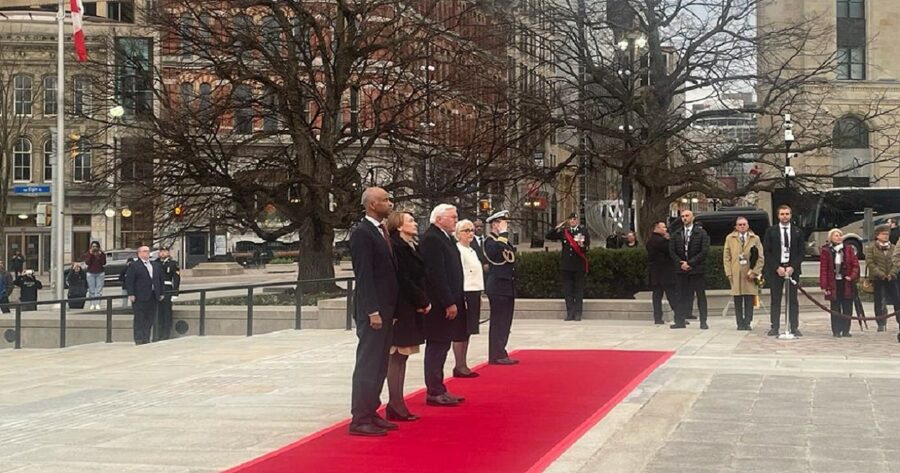The President of Germany, Frank-Walter Steinmeier, is currently on a visit to Canada, and the Prime Minister, Justin Trudeau, is set to participate in an expanded bilateral meeting with him throughout the morning. This meeting is an opportunity for both countries to strengthen their relationship and discuss important issues that affect both nations.
However, despite the importance of this visit, many people may not be aware Germany had a President, their role and the significance of this meeting. The German President is the head of state in Germany and has a mainly ceremonial role. The President is elected by the Federal Convention, which is composed of the members of the Bundestag (the lower house of the German parliament) and an equal number of delegates chosen by the state parliaments.
The President’s main duties include representing Germany in foreign affairs and signing bills into law. The President also has the power to dissolve the Bundestag in certain circumstances and to appoint the Chancellor.
However, the President’s powers are limited, and they do not have the same level of authority as the Chancellor, who is the head of government in Germany. The Chancellor is responsible for implementing policies and managing the day-to-day affairs of the government.
The German political system is a federal parliamentary republic, meaning that power is shared between the federal and state governments. The federal government is led by the Chancellor, who the Bundestag elects, which is the German federal parliament
The Bundestag is made up of 709 members, who are elected every four years through a system of proportional representation. The Bundestag is responsible for passing laws and overseeing the work of the government. Whereas the President can be elected to two consecutive five-year terms.
The Bundesrat is the upper house of the German parliament and is made up of representatives from the 16 German states. The Bundesrat has a role in the legislative process and can veto certain bills passed by the Bundestag.
The President’s visit to Canada is an important opportunity for both countries to strengthen their relationship and discuss important issues that affect both nations. Canada and Germany have a long history of cooperation, and both countries share many common values and interests.
During the expanded bilateral meeting, the leaders of both countries are expected to discuss a range of issues, including climate change, trade, and security. They will also likely discuss the ongoing COVID-19 pandemic and the global response to the crisis.
In addition to the meeting between the leaders, the President will also participate in a question and answer session with students, which is an important opportunity for young people to engage with the President and learn more about Germany and its political system.
The visit of the German President to Canada also highlights the importance of maintaining strong relationships between nations, particularly during times of uncertainty and instability. In an increasingly interconnected world, it is essential for countries to work together and build partnerships that promote peace, prosperity, and security for all.
Furthermore, the German political system serves as an example of a federal parliamentary republic, similar to many other nations worldwide. Although the specific details may vary from country to country, the underlying principles of democracy and shared power remain the same.
It is worth noting that many other nations around the world also have both a head of state and a head of government. In some cases, these roles are combined into a single position, such as the President of the United States. However, the roles are separate in other countries, such as France and Russia.









